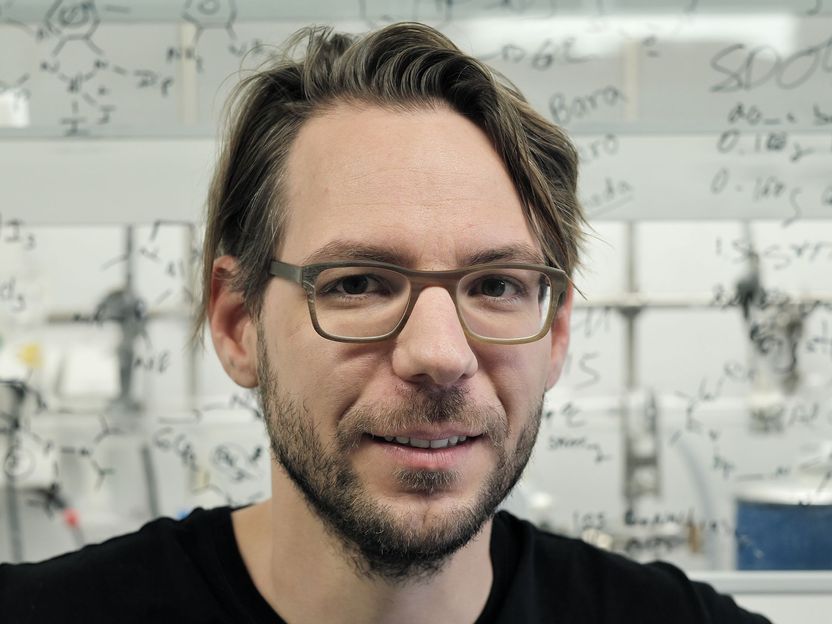Researchers succeed in synthesizing a new form of iron
New perspectives for important fields of application such as the energy industry
Advertisement
iron is one of the most common elements on earth and in the entire universe. It plays a key role in all areas of our lives, be it in industry or for the transport of oxygen in our blood. Researchers at Saarland University and other colleagues from Germany have now succeeded in synthesizing a new form of iron. Based on this fundamental research, there are prospects for important fields of application, such as in the energy industry. The findings were recently published in the journal "Nature Chemistry".

Prof. Dr. Dominik Munz
Universität des Saarlandes/Thorsten Mohr
Iron plays a central role, and not just as a raw material for the steel industry and other technical applications. Iron is also essential for many processes in nature and our bodies. "Iron compounds mediate redox processes, for example in the natural nitrogen cycle or in respiration. Our red blood gets its color from oxidized iron compounds, which transport oxygen through the body in this way," explains Dominik Munz.
The Professor of Coordination Chemistry at Saarland University is only marginally concerned with the chemistry of metals in our bodies, known as bioinorganics. However, their oxidation chemistry is one of his scientific focuses. And here, together with colleagues from the University of Erlangen-Nuremberg, the Max Planck Institute for Chemical Energy Conversion (Mülheim an der Ruhr) and the FU Berlin, he has achieved a breakthrough: the chemists have synthesized a new oxidation state of iron, iron(VII), as Dominik Munz explains.
"This means that we have removed seven electrons from an iron atom," says the chemist. Such a highly oxidized form of iron has never existed before, and there are only a handful of examples of six electrons. As the work that the scientists recently published in the journal "Nature Chemistry" is basic research, there is not yet any prospect of a concrete application for the new substance.
In principle, however, such compounds play a key role in many practical fields, particularly in the sustainable energy industry. "In oxidation chemistry, for example for the production of alcohol, one could well imagine their use, as well as in battery technology, the production of synthetic fuels and in water splitting," explains Dominik Munz. Splitting water into oxygen and hydrogen, i.e. artificial photosynthesis, has so far often been done on the basis of iridium. According to Dominik Munz, being able to replace this "super rare and super expensive" element with iron would be an unprecedented industrial breakthrough.
But there is still a long way to go. The new type of iron(VII) must first be investigated by other research groups in order to sound out its application potential. Dominik Munz and his colleagues from Erlangen, Mülheim and Berlin have now finally laid the foundations for this.
Note: This article has been translated using a computer system without human intervention. LUMITOS offers these automatic translations to present a wider range of current news. Since this article has been translated with automatic translation, it is possible that it contains errors in vocabulary, syntax or grammar. The original article in German can be found here.
Other news from the department science
Most read news
More news from our other portals
See the theme worlds for related content
Topic world Synthesis
Chemical synthesis is at the heart of modern chemistry and enables the targeted production of molecules with specific properties. By combining starting materials in defined reaction conditions, chemists can create a wide range of compounds, from simple molecules to complex active ingredients.

Topic world Synthesis
Chemical synthesis is at the heart of modern chemistry and enables the targeted production of molecules with specific properties. By combining starting materials in defined reaction conditions, chemists can create a wide range of compounds, from simple molecules to complex active ingredients.
































































